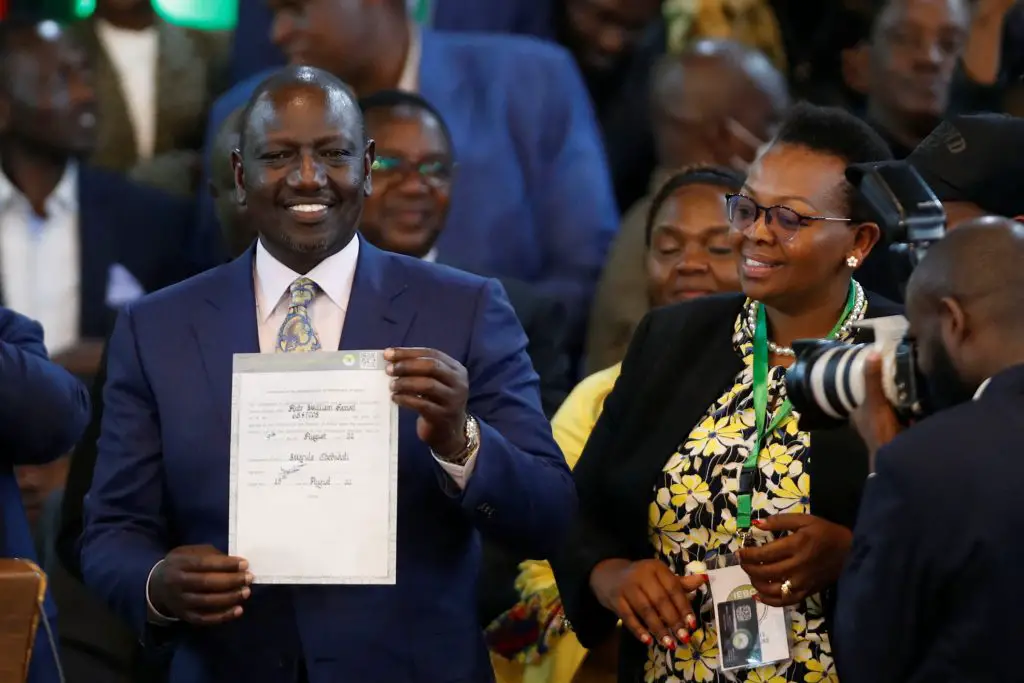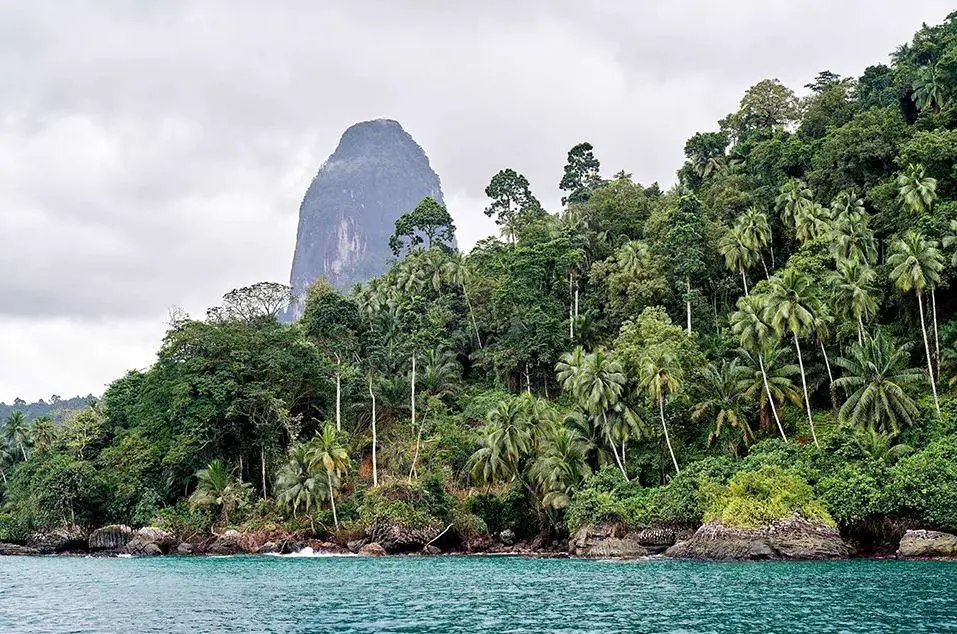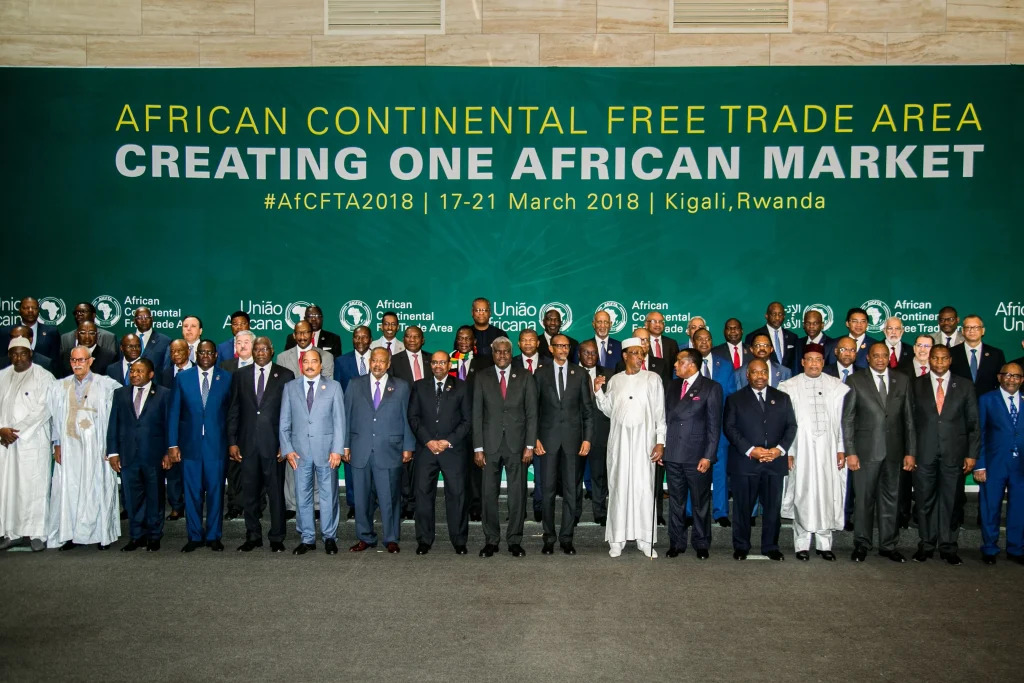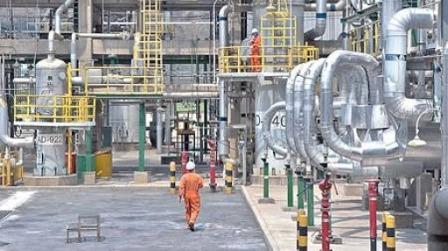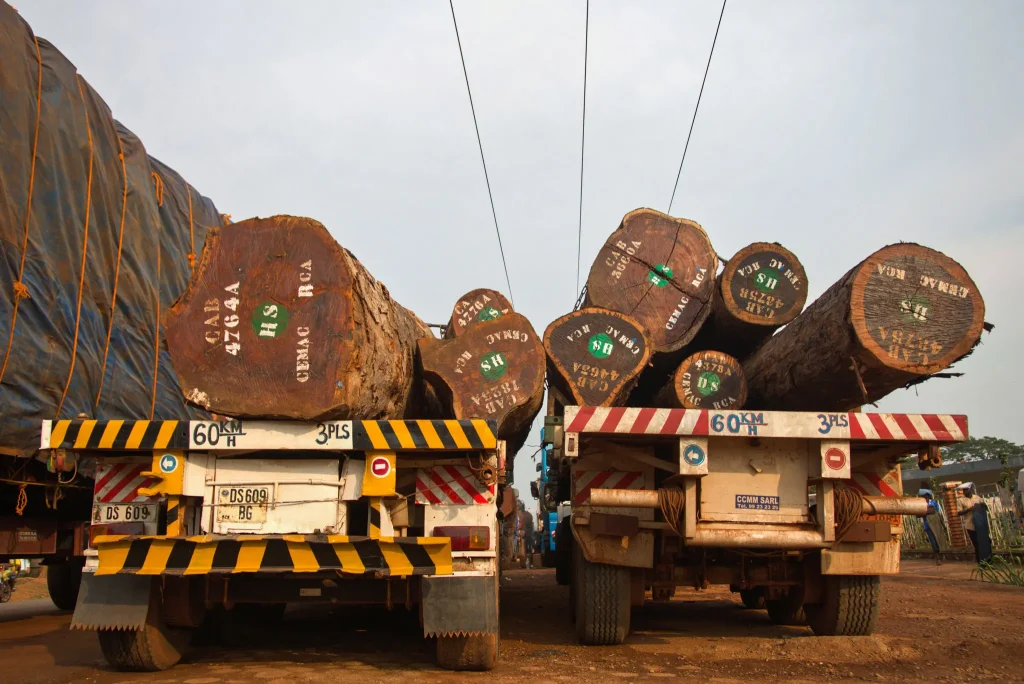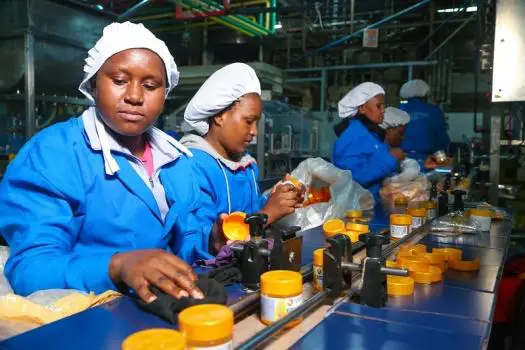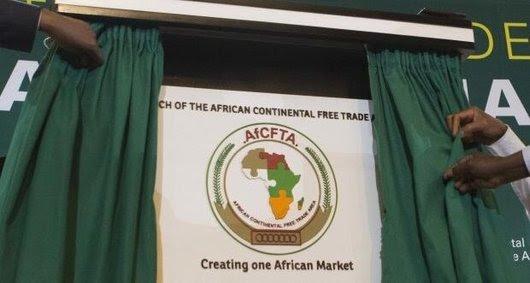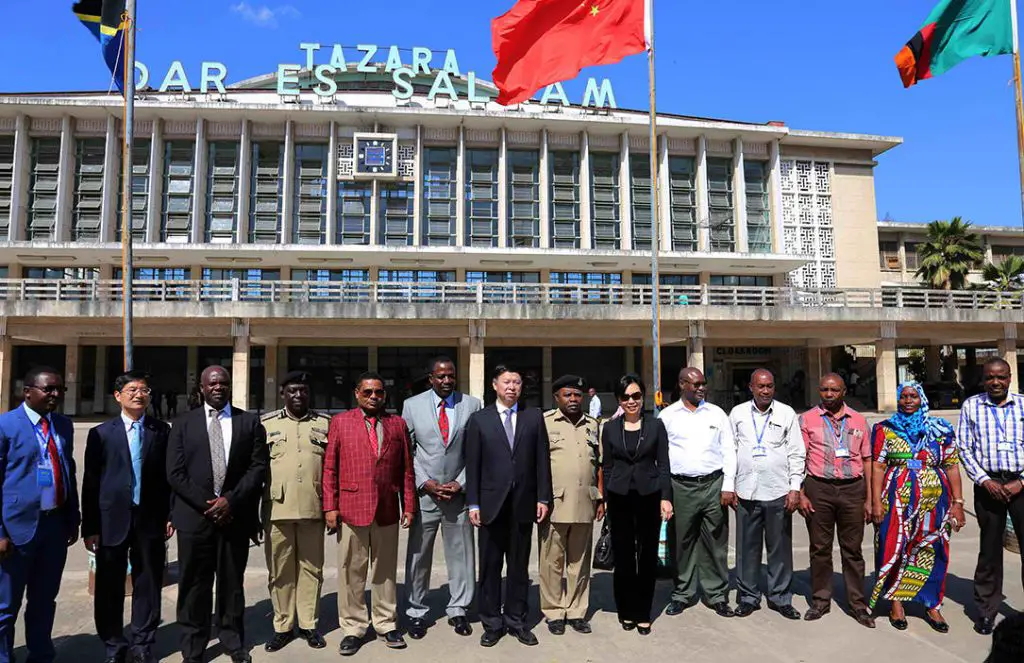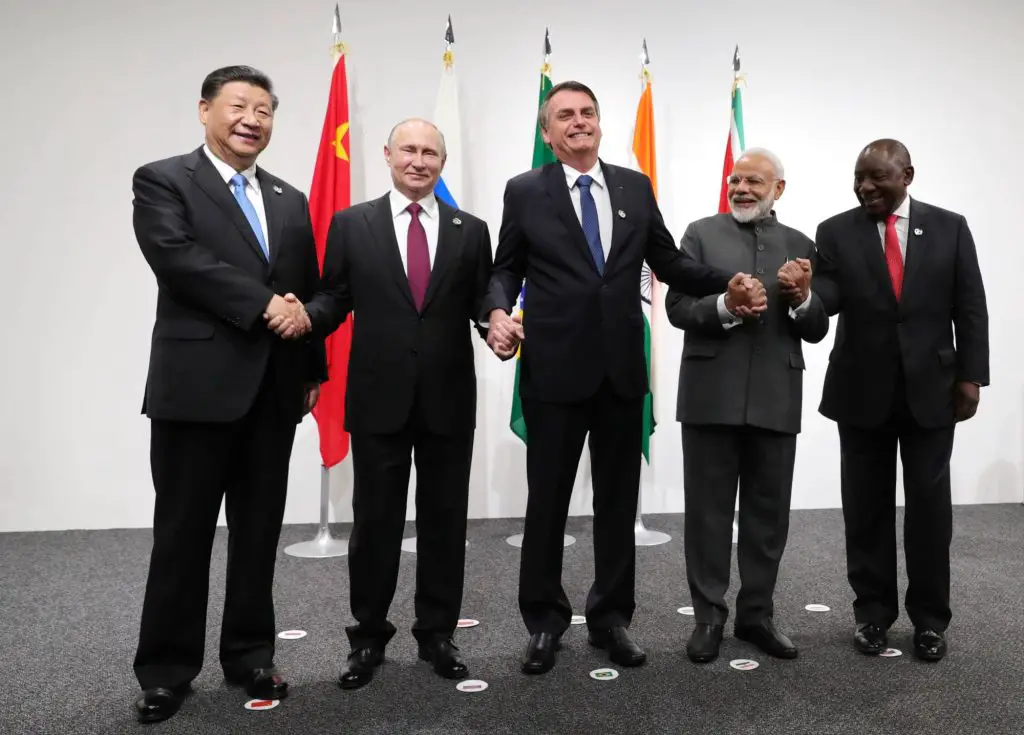- Africa’s new dawn: the rising role of digital and AI in agriculture
- Can Dangote Refinery Transform Africa Energy Ambition
- Gallup Survey: 80 per cent of Kenyan Workers Are Disengaged and Seek New Opportunities
- Madagascar Man Freed from 5KG Tumor After 15-Year Struggle
- How women in Africa are perceived and treated
- Sugar consumption in Kenya to Increase to 1.23 Million Tonnes
- Can Somalia and Turkey Oil deal Bring Change in Somaliland
- Remittances to Kenya dropped to $371.6 million in June, marking a six month low
Browsing: Trade
The head of the Portuguese government was speaking in Maputo at a joint press conference with the President of the Republic of Mozambique, with whom he met as part of the 5th Luso-Mozambican Summit.
The Autorização de Residência para Actividades de Investimento – first introduced in 2012 and commonly known as the ‘Golden Visa’ – is a residence permit that provides qualifying non-EU / EEA / Swiss citizens and their families with full rights to live, work and study in Portugal.
According to The Portugal News, an alternative to the Golden Visa is the Portugal Passive Income Visa – also known as a D7 Visa – which provides residency status to non-EU / EEA / Swiss citizens, including retirees, who intend to relocate to Portugal and are in receipt of a reasonable and regular passive income. The D7 Visa is aimed at those who intend to live in Portugal, so …
Ruto’s bottom-up economics plan, as described in his manifesto, appealed to the electorate all over the country. The high cost of living and the rising commodity prices have mainly caused despair and hopelessness among those at the bottom of the economic pyramid.
Ruto’s promises, if realised, might give significant relief from poverty and insecurity, notwithstanding the current catastrophic drought, weak institutions, and worldwide economic instability.
Ruto’s victory is thrilling for the most vulnerable members of Kenyan society. Still, if the incoming president fails to deliver on his campaign promises, political confidence will be difficult to regain, and social unrest will likely occur in the long term.…
Economically the World Bank categorizes São Tomé and Príncipe as a lower middle-income state with what it calls a fragile economy.
This is not a mischaracterization as the country relies heavily on the tourism sector, making it much more susceptible to external and exogenous shocks. This assertion is confirmed by the African Development Bank, which reported in its economic outlook on São Tomé and Príncipe that the country’s economy shrank by an estimated 6.4% in 2020 after growing by 2.2% in 2018 and 1.3% in 2019.
Will Ghana’s stance on value addition resonate in Africa?
For the first time in a decade, the contraction in output is attributed to a sharp decline in tourism and service sectors, which were severely hurt by weak external and domestic demand and COVID–19 containment measures.…
It is critical to strengthen a professional, independent supervision secretariat to make the AfCFTA agreement’s promise a reality. A strong secretariat can assist states in developing strong domestic institutions to administer, monitor, and enforce the AfCFTA. The moment for change has arrived. The conventional development models have failed Africa. The AfCFTA, on the other hand, signifies that Africa is open for business.…
President of Dangote Group, Aliko Dangote in his speech described the new plant as a game changer, as it can make Nigeria self-sufficient in fertilizer production, with spare capacity to export to other markets in Africa and the rest of the world.
While Dangote’s initial export targets were primarily Africa, current market realities mean there is increasing demand from outside the continent. Orders have come from far-flung places in the US, Brazil, Mexico, India, and the EU according to an article by African Business published on May 5, 2022.
According to the World Bank, the proximity of the new fertilizer plant offers a critical window of opportunity for Benin policymakers and the private sector to engage their Nigerian counterparts within the frameworks of the Economic Community of African States (ECOWAS), the African Continental Free Trade Agreement (AfCFTA) and other bilateral agreements to source fertilizer inputs for its farming population to …
The Central African Republic was the 186th largest exporter in the world in 2020 with a total export value of US$127 million. The country’s exports decreased by US$26.1 million over the past five reported years, from US$153 million in 2015 to US$127 million in 2020.
Rough wood which contributed US$51.9 million in export earnings, gold (US$34.7 million), diamonds (US$14.7 million), sawn wood (US$9.55 million) and refined copper (US$6.66 million) are the most recent export leaders. China (US$50.8 million), the United Arab Emirates (US$37.3 million), Italy (US$12.2 million), Belgium (US$6.84 million), and France (US$4.5 million) are the Central African Republic’s top export markets.…
The AfCFTA Agreement has been signed by 54 African nations thus far. Among them, 46 tariff proposals have been filed, including one by the Customs Union. Furthermore, 29 tariff proposals are technically validated for trade.
Under the Rules of Origin discussions, 87.7% of import tariffs have been settled, while phase two consultations on Investment, Intellectual Property Rights, Competition Policy, Women and Youth in Trade, and Digital Trade are underway.…
- The African Continental Free Trade Area (AfCFTA) Secretariat has launched an online hub to ease trade on the African continent
- The AfCFTA Hub is a focal point for national governments, intergovernmental, private, and public organisations
- It links the parties together to make way for SMEs and startups to drive the success of the African Continental Free Trade Area
The African Continental Free Trade Area (AfCFTA) Secretariat has launched an online hub to ease trade on the African continent.
The AfCFTA Hub is a focal point for national governments, and intergovernmental, private, and public organisations. It links the parties together to make way for SMEs and startups to drive the success of the African Continental Free Trade Area.
The online hub is designed to grow into a single, trusted directory of the services needed to navigate the AfCFTA for small players, thereby making the AfCFTA the most inclusive Free Trade Area …
ZAMBIA and Tanzania last week agreed to revamp and recapitalize the TAZARA railway and expand the TAZAMA pipeline following a change in objectives from the transportation of crude oil to finished products.
Tanzanian President Samia Suluhu Hassan said the agreement to revive TAZARA was reached when she held talks with visiting Zambian President Hakainde Hichilema at State House in the commercial capital Dar es Salaam.
According to Zambia Daily Mail, TAZARA was constructed as a turnkey project between 1970 and 1975 through an interest-free loan from China, with commercial operations starting in July 1976, covering 1,860 kilometres from Dar es Salaam in Tanzania to New Kapiri Mposhi in Zambia.
President Hassan added that the two leaders have also agreed to work closely in promoting trade and investment through the revival and renovation of key joint post-independence infrastructure projects that were built to link the two nations, including the Tanzania-Zambia Crude …
- When the United Nations General Assembly voted overwhelmingly on March 2 to condemn Russia’s invasion of Ukraine, African countries accounted for almost half of the 35 abstentions including South Africa.
- The conflict triggered by Russia’s invasion has complicated the challenges and sources of stress already facing Southern Africa.
- A few countries are sensing long-term growth opportunities from the crisis. Specifically, Africa’s natural gas could reduce Europe’s dependence on Russian energy.
Russia’s invasion of Ukraine has upended the existing world order and with it the global energy, production, distribution, and financial systems. Russia and China are openly challenging the Pax Americana. But the question of what the next world order will look like remains wide open.
On February 24, 2022, Russia launched a large-scale invasion of Ukraine, its neighbour to the southwest, marking a dramatic escalation of the Russo-Ukrainian War that began in 2014, Putin announced a “special military operation” in …






